MAPS program research lab information
+
Experimental Faculty
Dr. John Blanchar - Social and Political Psychology Lab
The Social and Political (S&PP) Lab at the University of Minnesota Duluth investigates the psychological bases of political attitudes and behavior. Topics of study include why people are attracted to left-wing and right-wing political ideologies, the psychology of tradition and social change, voting preferences and behavior, and how and why people sort into politically like-minded networks and enclaves and the consequences this has for polarization, intolerance, stress and well-being, and shared social reality. Undergraduates and prospective graduate students are encouraged to contact Dr. Blanchar ([email protected]) about opportunities to get involved in lab research.
Dr. Rebecca Gilbertson - Neurocognitive and Emotion Lab (NC Lab)
The primary research focus of the Neurocognitive and Emotion Lab is to understand health-related factors that influence neurocognitive function including substance use, abuse, and dependence (particularly alcohol). Non-substance use disorders (“behavioral addiction”) and physiological response to stressors are emerging topics of study in the lab. Given the complexity of brain change (primarily in the domains of attention and working memory), a variety of techniques are used including traditional computerized cognitive batteries, physiological and electroencephalographic (EEG) recordings, eye tracking and pencil/paper neuropsychological measures. Lab members also assist with neuroscience outreach to middle and high school students. For more information, visit the NCLab website.
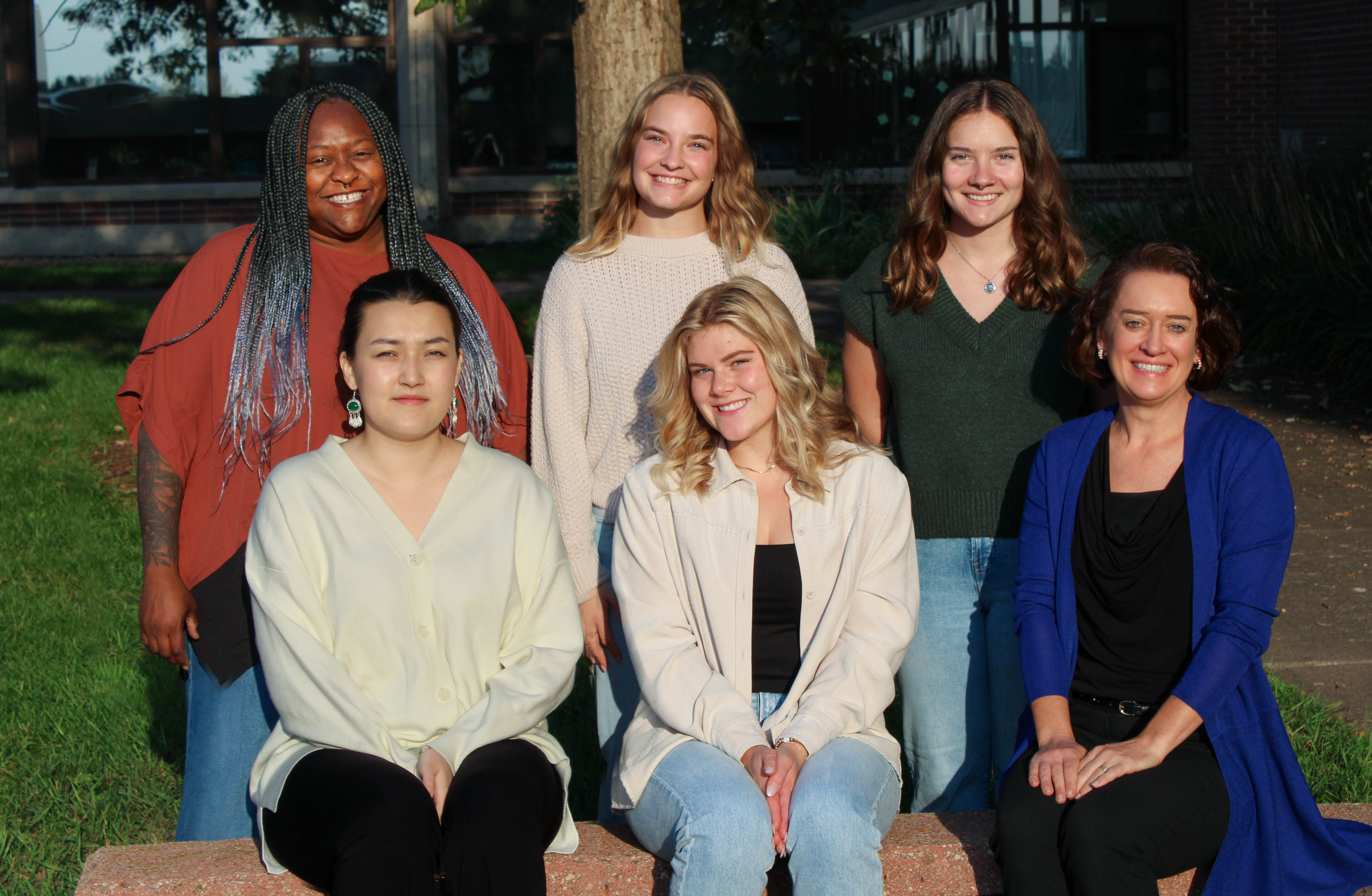
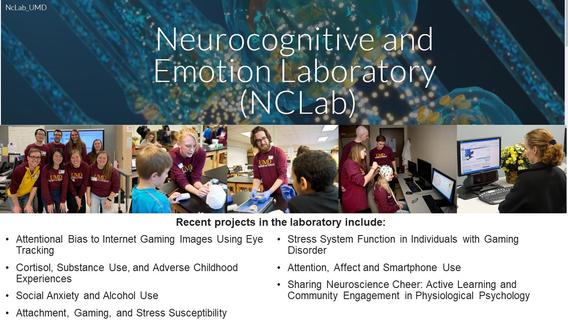
Dr. Madeline Harms - The Learning, Emotion, and Development (LEAD) Lab
The Learning, Emotion, and Development (LEAD) lab at UMD examines the intersection of cognitive and emotional development. A major focus of our work is investigating how various forms of stress affect the ways in which children, adolescents, and adults learn and process information. Our research involves diverse populations and methods, including in-person and online studies, computerized tasks, surveys, and interviews. Recently, we have also been involved in a collaborative project examining how instructors utilize inclusive pedagogical strategies in Introductory Psychology, and their effects on student learning. This study uses a community-based participatory research approach. Our lab values diversity in the background and perspectives of our lab members, and we work hard to create an environment where all lab members feel respected, valued, and safe. Opportunities exist for both undergraduate and graduate students who have interests in developmental or educational psychology. If you are interested in joining the LEAD lab, please contact Dr. Madeline Harms ([email protected]).
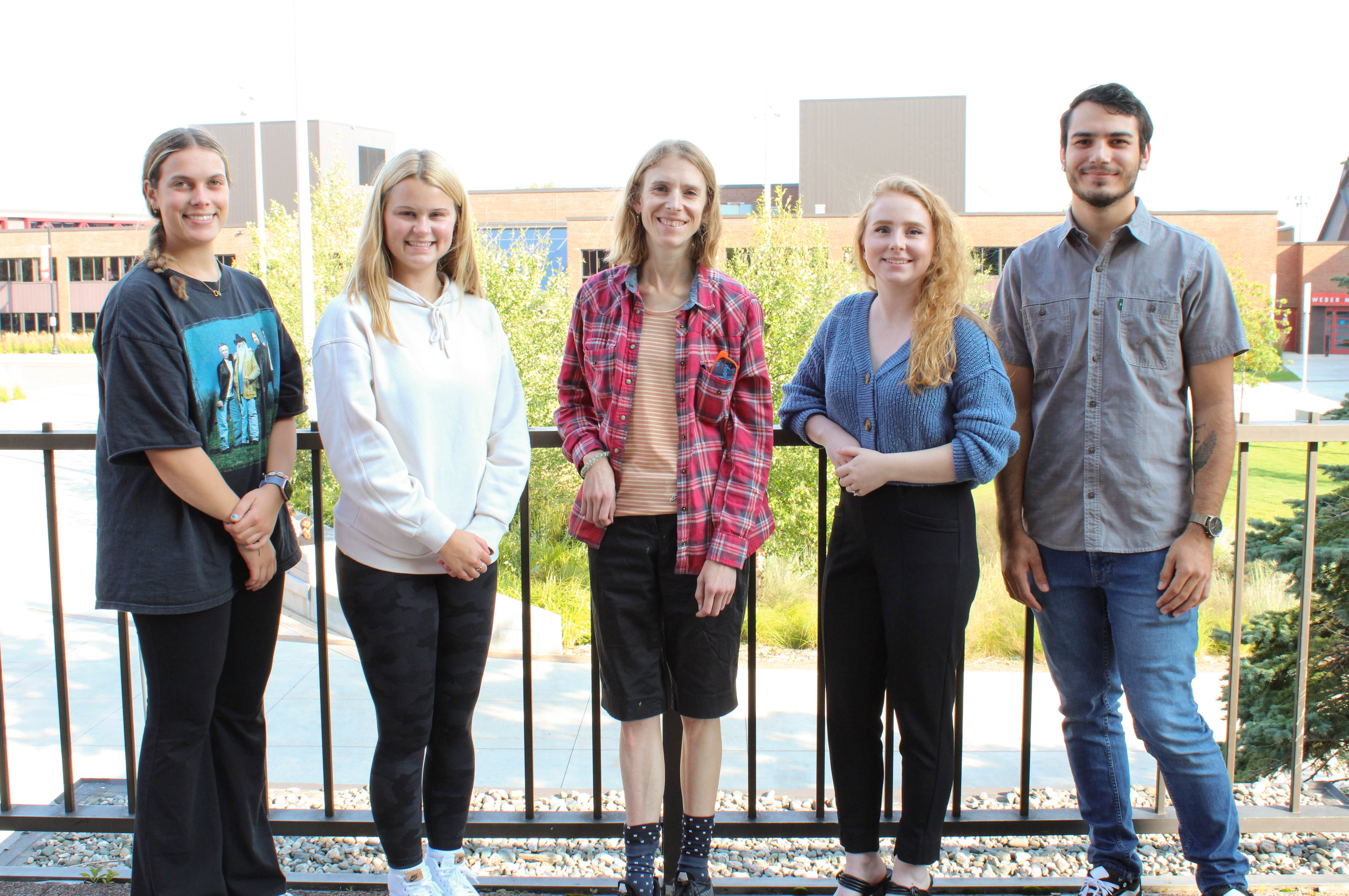
Dr. Eric Hessler
Dr. Hessler has advised students on research projects covering motor control, coordination and learning, ecological psychology-perception/action, nonlinear dynamics and complexity, and interpersonal and team coordination. If you would like to learn more about Dr. Hessler's research and advising, you can contact him at [email protected].
Dr. Bob Lloyd
Dr. Lloyd has advised students on research projects involving physiological psychology of emotions and species-specific behavior, statistics, experimental design, electrophysiology, neurochemistry, and neuroendocrinology. If you're interested in learning more about Dr. Lloyd's research and advising, you can contact him at [email protected].
Dr. Ashley Thompson - Sexuality and Relationship Science Lab
The primary research focus of the Sexuality and Relationship Science Lab is to understand people’s attitudes, judgments, and motives related to sexuality, intimacy, and romantic relationships. This is often done by applying social and cognitive psychological theories and testing them experimentally using sophisticated quantitative techniques.
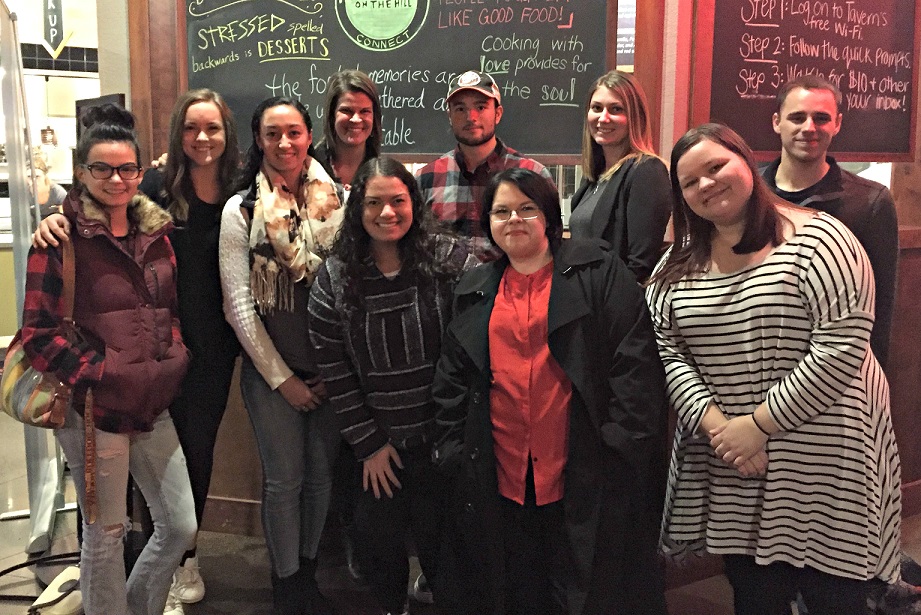
+
Clinical Counseling Faculty
Dr. Kathy Dowell - The Psychotherapy for Children and Adolescents Research Effectiveness (P-CARE) Lab
The Psychotherapy for Children and Adolescents Research on Effectiveness (P-CARE) lab studies factors that impact the effectiveness of child psychotherapy, including caregiver engagement, economic factors, ethnicity and family history, and presenting problems for children ages birth to 18 and their families. Through community-based research, our lab collaborates with mental health professionals as partners to create shared initiatives that inform practice and access to care for regional families. Previous research studies in our lab have covered topics such as the role of caregiver strain and engagement in residential mental health service outcomes for children, predictors of prescription patterns among children in partial hospitalization programs including diagnoses and psychosocial stressors, and treatment outcomes of partial hospitalization programs by entry point.
Interested in learning more about how psychotherapy works for children and adolescents, and their families? Interested in learning about the different ways mental health services are provided to children and families in our community? Interested in learning about empirical, community-based research, quantitative analysis, and leveraging research results to improve mental health services for children and families? Then visit the P-CARE website, and contact Dr. Kathy Dowell ([email protected]) for more information on how to get involved.
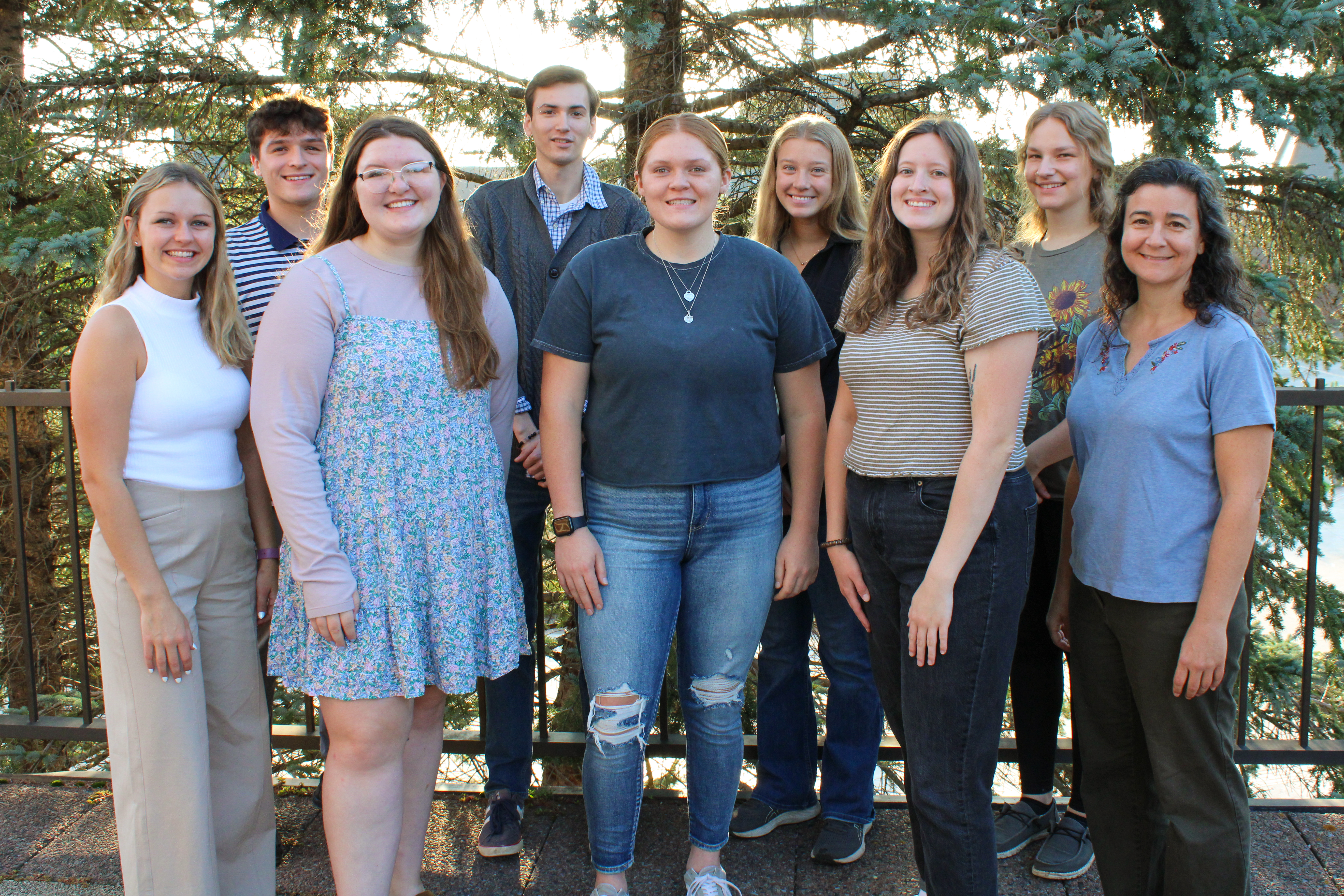
Dr. Lara LaCaille & Dr. Rick LaCaille - The Healthy Living and Learn (H2L) Lab
The Healthy Living and Learning (H2L) lab at UMD examines the intersection of psychology with health and learning. A primary emphasis within the lab is placed upon how self-regulation affects mental and physical health. In particular, we examine how various motives for the health behaviors of eating and physical activity are associated with weight management, well-being, and quality of life. A corollary of this work has been to study attentional focus during exercise and sports. Our research employs a variety of populations and approaches, including delivery of interventions to encourage healthy living. More recently, we have begun to also investigate how pedagogical strategies and self-regulation influence student learning.
A goal of the H2L lab is to train students interested in becoming scholars and critical thinkers. Past members of the lab have gone on to doctorate programs in psychology as well as graduate training in public health. Opportunities exist for both undergraduate and graduate students who have interests in clinical, health, or sport psychology. If you are interested in joining the H2L lab, please contact Drs. Lara or Rick LaCaille.

Dr. Viann Nguyen-Feng - Mind-Body Trauma Care Lab
The Mind-Body Trauma Care Lab aims to increase access to holistic, embodied, and trauma-informed psychotherapeutic care.
This research addresses access to care issues in two main ways:
- Sharing wellbeing-focused, trauma-conscious, and embodied healing interventions (e.g. trauma-sensitive yoga, body-based and movement therapies, mental-physical healthcare integration, context-inclusive approaches) with individuals who might not otherwise access them.
- Developing and implementing interventions that broaden psychotherapy's reach (e.g. technological, community-based) while evaluating what works best for whom.
We aim to serve at-risk and underrecognized groups, such as those who have been exposed to interpersonal traumas (e.g. emotional abuse, race-based stressors), have disabling life experiences, and/or may be experiencing psychosociocultural oppression. For more information, visit our lab website.
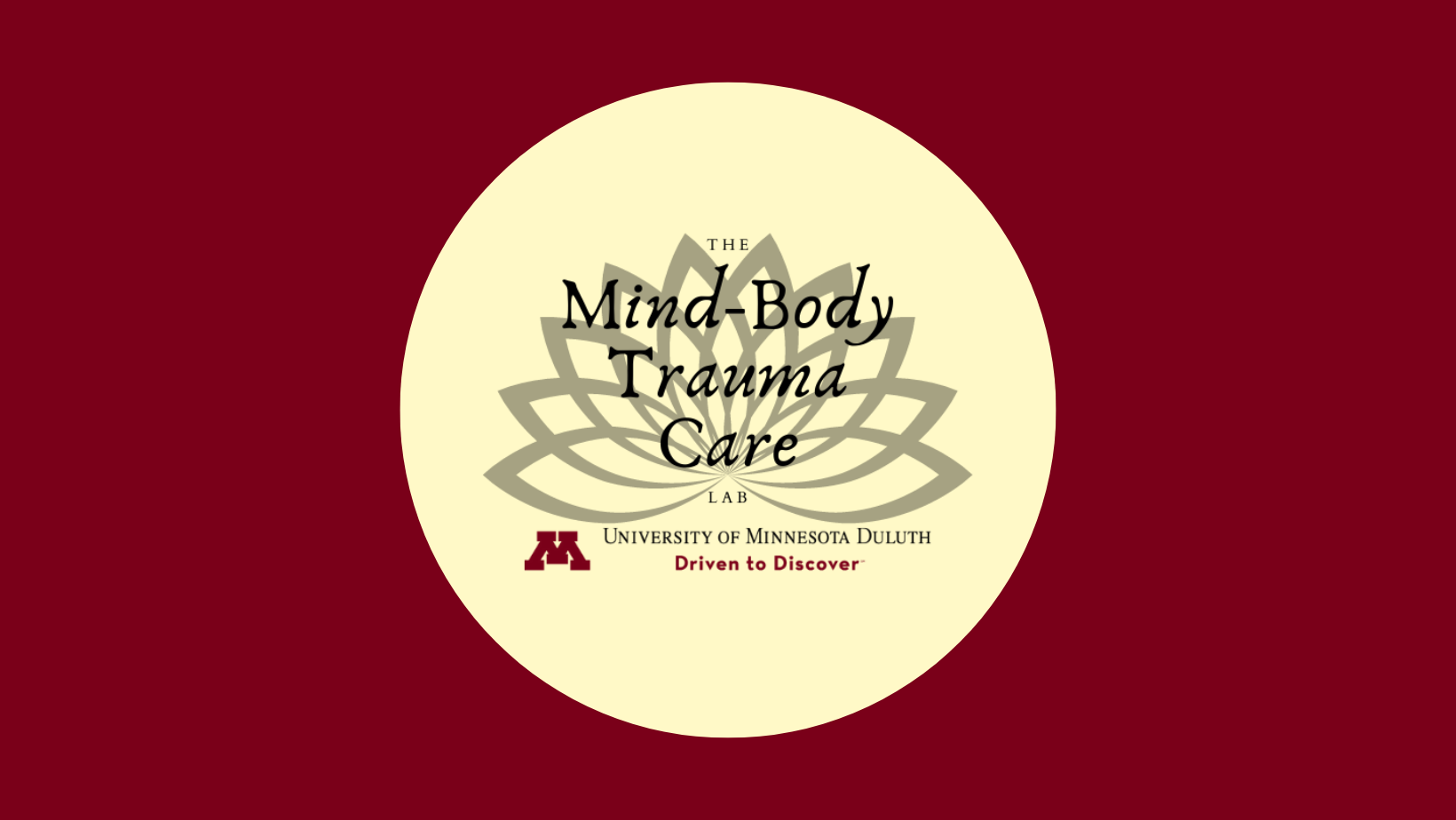
Dr. Rhea Owens - Shine Research Team
The Shine Research Team studies applications of positive psychology across a variety of contexts, with a focus on the well-being of underrepresented, underserved, and economically disadvantaged children and youth. In particular, the team focuses on research involving the assessment, development, and use of strengths and positive psychological interventions. In addition to the research conducted, the Shine Research Team aims to disseminate knowledge and evidence-based practices in positive psychology to help improve the lives of others.
Students who are a strong fit for the Shine Research Team are:
- Interested in positive psychology
- Enthusiastic about conducting and learning more about research
- Conscientious, organized, hard working, and eager to learn
Questions or interested in getting involved? Please contact Dr. Owens ([email protected]).
Dr. Catherine Reich - Psychotherapy and Trauma Research Lab
The Psychotherapy and Trauma Research Lab includes two separate lines of research. The primary line of research investigates why therapy/counseling "works." In other words, what mechanisms are responsible for client change. We often examine verbal and nonverbal behaviors of the therapist for their impact on psychotherapy process and outcome. The second line of research primarily centers around self-blame cognition held by trauma survivors and aims to learn more about the development, function, maintenance, and process of change for these types of thoughts.
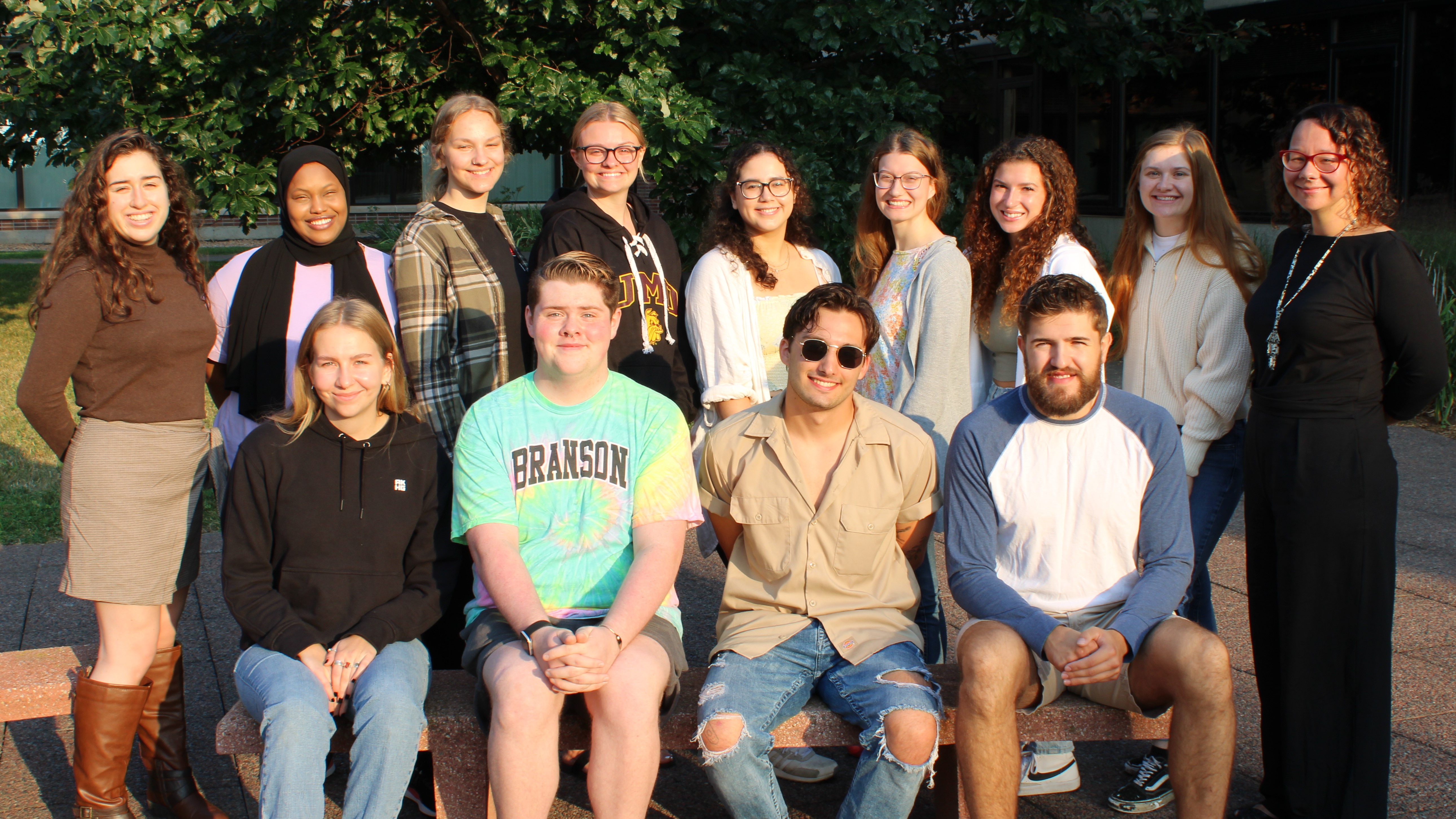
+
Industrial-Organizational Faculty
Dr. Alexandra Luong
Our group works on projects related to Dr. Luong's primary lines of research: emotions in the work place, judgment and decision-making in recruitment and selection, and workplace meetings. Projects include examining correlates of psychological safety in meetings, preference for intuitive versus analytical methods in hiring, and the role of empathy in decision-making. Graduate and undergraduate students take active roles in various aspects of the research process, from research design to data collection to dissemination of findings.
Dr. Kyle Mann - The Emotion Regulation and Worker Well-Being (ERWW) Lab
The Emotion Regulation and Worker Well-Being (ERWW) lab focuses on addressing questions related to the emotional experiences of workers and the well-being outcomes that follow. At the center of our work is a desire to make the workplace a healthier and happier place for employees by understanding the emotional demands placed on them, as well as other important organizational psychology topics such as worker rights, theories of stress, organizational culture-fit. It is our hope that through researching these topics we can better understand important employee outcomes such as burnout,
counterproductive work behaviors, employee perceptions of fairness/justice and more!
Our lab is also very focused on honing our research skills in general. Whether it is a new statistical method or software, becoming a better writer, or learning how to convey our research to lay people, a theme of growth and learning is at the center of what we do. Particularly, a goal is to have both academics and applied-focused individuals alike walk away with worthwhile skills that will allow them to go out and be effective in whatever career they chose. Visit the ERWW Lab website to find out more!
Dr. Julie Slowiak - Wellbeing & Behavioral Science Lab
Research within the Wellbeing and Behavioral Science (WBS) Lab at UMD can be described as an interdisciplinary exploration at the intersection of behavior analysis, industrial/organizational psychology and occupational health psychology. Our work examines factors within physical and social work environments that influence individual and organizational health, performance, and wellbeing. Members of the lab work on projects that fall within four themes: (a) the broader realm of worker well-being, (b) the convergence of chronic health and work, (c) the psychology of health, sport, and fitness, and (d) the development of behavioral frameworks for non-behavioral concepts/constructs. The intention is to develop objective measure and design sustainable interventions that improve human wellbeing through research and practice grounded in behavioral science.
Opportunities exist for both undergraduate and graduate students who have interests in organizational behavior management (behavior analysis applied to the workplace), industrial/organizational psychology, and occupational health psychology. If you are interested in joining the WBS Lab, please contact Dr. Julie Slowiak ([email protected]).
